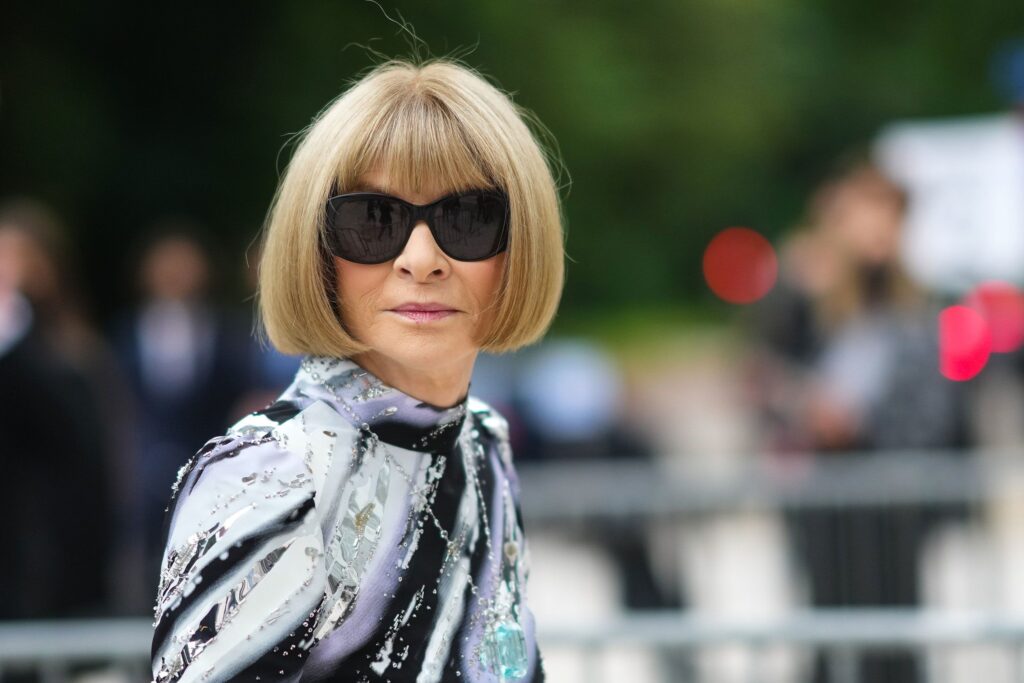In the ever-evolving realm of fashion, Anna Wintour’s name is synonymous with influence and authority. As the editor-in-chief of Vogue since 1988, Wintour has long been considered a fashion icon, shaping trends and setting standards. However, as the industry becomes increasingly diverse and democratized, it’s time to question whether Wintour’s towering presence remains as significant as it once was or if she is, in fact, overrated. With speculation swirling about her potential retirement, the question of her lasting influence becomes even more pertinent.
Who is Anna Wintour?
Anna Wintour, the influential editor-in-chief of Vogue, has been a central figure in the fashion industry for decades. Known for her distinctive bob haircut and ever-present sunglasses, Wintour’s leadership has transformed Vogue into a cultural institution. Her role has been crucial in promoting designers, shaping trends, and influencing fashion discourse. Wintour’s annual Met Gala, a high-profile fundraising event, underscores her significant impact on the fashion world.
Why is Anna Wintour Considered a Fashion Guru?
Wintour’s reputation as the ultimate fashion authority stems from her ability to drive trends and shape the industry’s landscape. Her endorsements are highly sought after, and her influence extends to the careers of designers, models, and celebrities. Under her guidance, Vogue has maintained its status as a leading fashion magazine, reflecting her pivotal role in setting fashion standards.
The Changing Fashion Landscape
Despite Wintour’s storied career, the fashion industry is undergoing a transformation. With the rise of social media, digital platforms, and a focus on inclusivity and sustainability, the influence of traditional gatekeepers like Wintour is being questioned. The modern fashion landscape is characterized by a diverse array of voices and perspectives, challenging the notion that a single figure can dictate trends and tastes.
Is Anna Wintour Overrated?
As fashion becomes more inclusive and fragmented, the question arises: Is Anna Wintour’s influence overstated? Critics argue that Wintour’s impact may be more symbolic than practical in today’s dynamic fashion environment. Her reviews and endorsements, once seen as definitive, might not hold the same weight in an era where personal expression and ethical practices are increasingly valued.
Wintour’s approach to fashion, which has traditionally focused on luxury and conventional beauty standards, may seem outdated in a world that prioritizes diversity and sustainability. The industry’s shift towards a broader definition of beauty and ethical fashion practices suggests that the role of a single fashion authority is diminishing.
The Future of Fashion Leadership and Wintour’s Imminent Retirement
As we move forward, it’s essential to recognize the changing dynamics of the fashion industry. While Anna Wintour’s contributions to fashion are significant, the evolving landscape demands a broader appreciation of diverse voices and perspectives. Fashion is no longer dictated by one person’s vision but is instead shaped by a collective of influencers, creators, and consumers.
With growing speculation about her potential retirement, Wintour’s imminent departure could further shift the fashion industry’s focus. Her retirement would signal the end of an era but also open the door for new leaders to shape the future of fashion. Embracing this new paradigm means acknowledging that fashion’s future is shaped by a multitude of voices, not just a single influential figure.
In conclusion, while Anna Wintour remains a prominent figure in fashion, her role as the ultimate tastemaker is being challenged by a more inclusive and democratized industry. Whether she retires soon or continues to lead, it’s clear that the future of fashion will be defined by a diverse array of voices and perspectives, marking a shift from the era of a singular fashion authority.



